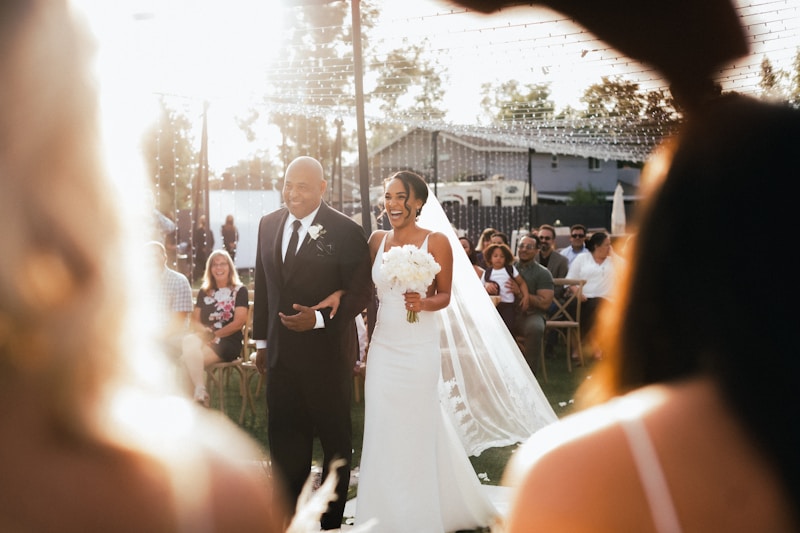Exploring Ethical Marriage Practices: A Comprehensive Guide
Understanding Ethical Marriage Practices
Marriage, a sacred union between two individuals, varies significantly across cultures and societies. Ethical marriage practices, as a concept, aim to ensure that this union is respectful, considerate, and fair. In today's article, we will dive into what constitutes ethical marriage practices, their significance, and how individuals can adopt these principles in their relationships.
What Are Ethical Marriage Practices?
Ethical marriage practices refer to the moral guidelines and standards that couples should adhere to in maintaining a healthy, respectful, and loving relationship. These practices promote equality, consent, and transparency between partners. Let's take a closer look at some key components of ethical marriage:
| Component | Description |
| Consent | Both partners should agree to the marriage without any coercion. |
| Equality | Partners should complete one another and share equal rights and responsibilities. |
| Honesty | Open communication about expectations, desires, and boundaries. |
| Mutual Respect | Valuing each other’s individuality and opinions. |
| Financial Transparency | Full disclosure of each partner’s financial situation and goals. |
| Emotional Support | Being there for one another during tough times and celebrating together in joyous moments. |
The Importance of Ethical Marriage Practices
The foundation of a successful marriage is built on ethical practices. Here are several reasons why ethical marriage practices are crucial:
- Enhances Communication: Ethical practices encourage open dialogue, which is essential for understanding each other's values and needs.
- Builds Trust: When partners are honest and transparent, trust is fostered, leading to a deeper emotional connection.
- Promotes Equality: Ethical marriage ensures that both partners have equal say in decisions, which strengthens the relationship.
- Prevents Conflicts: By adhering to ethical practices, many potential conflicts can be avoided, resulting in a more harmonious relationship.
Common Ethical Marriage Practices Around the World
Different cultures approach marriage in unique ways while emphasizing key ethical principles. Here are a few examples:
Western Traditions
In many Western cultures, the emphasis is often on individualism, love, and the importance of mutual consent. Ethical practices, such as premarital counseling, are increasingly common to help couples navigate their expectations.
Eastern Traditions
In several Eastern cultures, familial involvement in marriage decisions is more prevalent. Ethical practices here often focus on respect for family opinions and the significance of maintaining harmony among all parties involved.
Indigenous Practices
Many indigenous cultures have unique ceremonies and ethical practices that emphasize the connection to community and land. In these cases, marriage is often seen as a bond not just between two individuals but also with their community and nature.
How to Implement Ethical Marriage Practices
Integrating ethical practices into your marriage doesn't have to be overwhelming. Here are some actionable steps:
- Have Open Conversations: Regularly discuss your feelings, expectations, and fears with your partner.
- Practice Active Listening: Show genuine interest in your partner's perspectives and validate their feelings.
- Set Clear Boundaries: Understand each other's boundaries regarding finances, social activities, and personal space.
- Engage in Joint Decision Making: Whether it's about finances or children, involve each other in major decisions.
- Seek Professional Guidance: Consider marriage counseling or workshops focused on ethical marriage practices.

Common Questions About Ethical Marriage Practices
As couples explore ethical marriage practices, several questions frequently arise:
- What if my partner doesn't agree with ethical practices? It's essential to communicate your concerns and desires clearly. Mutual respect is key in any relationship.
- Can cultural differences impact ethical practices? Absolutely. It's crucial to acknowledge and respect each other's cultural backgrounds while finding common ground.
- Are ethical practices relevant to same-sex marriages? Yes, ethical practices apply universally, regardless of sexual orientation. The principles of consent, respect, and honesty remain vital.
- How can financial transparency be achieved? Create a budget together, discuss financial goals openly, and keep each other informed about financial matters.
Conclusion: Embracing Ethical Marriage Practices
In summary, ethical marriage practices play a critical role in fostering healthy, supportive, and lasting relationships. By focusing on values like consent, equality, honesty, and mutual respect, couples can build a strong foundation for their marital journey. Remember, it’s essential to communicate openly and to be willing to adapt and grow together. Consider seeking guidance or resources if you find it challenging to navigate these practices on your own. Embracing ethical marriage practices is not just beneficial for the couple; it's a commitment to nurturing a healthier society.